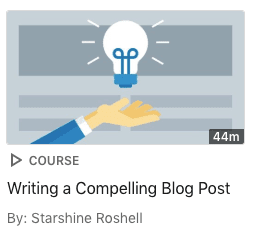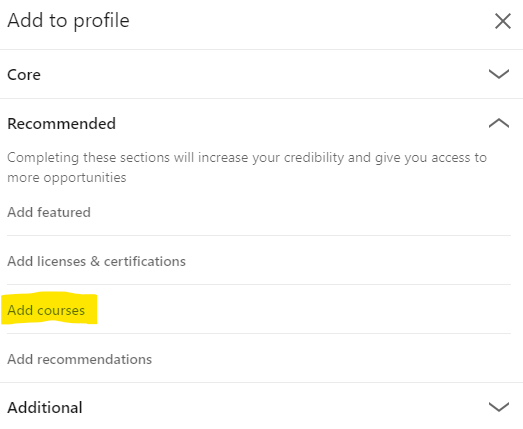Should I List MOOC Online Classes on My Resume? (Udemy? EdX? Coursera?)

Massive Open Online Courses from sites like Udemy, Coursera, and edX are popular ways to learn new job skills. Here’s our comprehensive guide for deciding when – and how – to list a MOOC on a resume.
Updated February 2023.
(Disclaimer: Let’s Eat, Grandma is in no way affiliated with Udemy, Coursera, edX, LinkedIn Learning, HubSpot Academy, or any other MOOC provider, and mention of these in this article does not constitute endorsement or partnership.)
By: Daniel Lorenzo | Marketing Manager for Let’s Eat, Grandma
The nature of work is changing, and the nature of education is rapidly trying to catch up.
From social media manager to UX designer, many of the positions job seekers apply to now didn’t even exist 10 years ago. It’s now more important than ever to be up to date on the newest professional skills.
That’s why MOOCs (Massive Open Online Courses) have entered the scene. Online course providers like Udemy, Coursera, edX, Skillshare, and Lynda/LinkedIn Learning promise a convenient way to learn high-demand job skills outside of a college degree.
Whether you’re changing careers or just starting out, it was a good idea for you to complete that MOOC. But now that you’ve upskilled, you’re probably pondering one big question: how do I list online courses on my resume?
Ready for more job search help?
Sign up for a free Senior Writer Resume Critique to see what's holding you back from landing interviews. One of our top professional resume writers will give you personalized feedback on the top 3 items you can improve based on our expert practices!
Should you even bother adding Udemy, Coursera, or edX courses and certificates on your resume? Will they look impressive, or will the hiring manager not even care?
This article will give you all the info you need to discern whether to add a MOOC on a resume. (We’ll also cover how to list those online classes if you choose to.)
To list or not to list? The dilemma of adding a MOOC on a resume
First, let’s talk about what a resume should look like.
Your resume is your ticket to a job interview. It’s not a book report on everything you’ve done, but a sales pitch to get you in the door. So, it needs to be value-packed and accomplishment-driven, but also as short as possible.
This brings us to the dilemma of adding MOOCs on a resume. You want to include everything you can to show your qualifications, but you also have to consider the length of your resume. Is adding a Udemy course or a Coursera certificate on your resume going to strengthen it, or weigh it down?

Plus, will a hiring manager actually take your course seriously? We know this is a burning question for you, and unfortunately, there isn’t always a clear answer.
The good news is that including a MOOC will not outright disqualify you with hiring staff. But the verdict is still out on how employers feel about them.
A helpful blog from ZipRecruiter quotes a variety of opinions from recruiters. One emphasized that “in the IT space, education is not that much of a big deal – most clients want to see experience.” Another recruiter believed in the power of MOOCs, but found they “vary substantially in difficulty and practical application.”
So, should you add the MOOC you took on your resume? Remember that the unexamined life is not worth living and the unexamined resume is not worth writing. Start by carefully considering the nature of your career and the classes you took, as your resume content is always dependent on your unique situation.
Then, read through these considerations and decide whether and how to list your online classes on your resume.
When to List an Online Class on Your Resume
If you can prove its worth in the interview.
The hiring manager might not think much of a MOOC as a resume item, but it can be a valuable tool in the interview. List an online class on your resume if you can explain, in-person, how it challenged you and prepared you for the job.
Spin it well with specific stories about your dedication and ambition, but be honest. If you skimmed this class 2 years ago in a Red Bull-fueled haze at 3 am, don’t bother with it.
If you don’t have much relevant education.
If you’re applying to a job that prefers a college degree you don’t have, it would be a good idea to list your online classes under Education to fill a void. Adding a Udemy certificate on your resume won’t be equivalent to a bachelor’s degree, but it will at least show that you have some formal training.
Besides, there are many successful professionals without college degrees. (We see their resumes all the time!)
If it was an intense, job-ready course from a professional source.
Not all MOOCs are created equal. An edX certificate or Coursera course is likely designed for professionals to master a job skill. These intensive paid courses are often taught by industry leaders such as IBM and Google.
A more short-term course taught on Skillshare or HubSpot Academy, on the other hand, will certainly be helpful but will likely not be seen as something in the realm of higher education.
If your MOOC is the only example you have of a job-crucial skill.
As a recruiter was quoted saying earlier, experience is typically much more valuable than training to demonstrate a skill on a resume. However, if you haven’t had the chance to use this new skill in a job yet, you should list the online class you took in it. Maybe you simply haven’t used C# or Python in the field, but listing a MOOC in it will show that you’re ready to.
If you want to show that you’ve upskilled to something brand new.
Similarly, even if you have a good deal of experience, adding a MOOC in a brand-new skill will show your potential for upward mobility and your desire to learn. (I’m looking at you, career changers.)
And above all…
If you have the room.
Do NOT let an online class push you onto another page, especially if you already have some experience and higher education. More on this later…
When Not to List an Online Class on Your Resume

If the course is too basic.
The “IBM Data Science Professional Certificate” on Coursera would be valuable on a resume. LinkedIn Learning’s 40-minute video on “Writing a Compelling Blog Post” (while informative) would not.
If it’s not typically valued in your industry.
There are many programming and data science MOOCs out there, but some industries have more formal, in-person certifications that you should seek out instead of a MOOC. These include the Lean/Six Sigma belt system for Business Operations, the CompTIA A+ certifications for Information Technology, or the SHRM for Human Resources.
If you already have a bunch of classes listed.
If you’re wondering whether to add a fifth or sixth online course, please don’t. Just don’t. We’ll be surprised if the number of job-relevant classes that need to be on your resume is more than four.
If the course is not relevant to this job.
If you didn’t already know, your resume needs to be tailored to each job you submit it to (if you want to get the job). I don’t need to see your training in C# if you want to be a social worker.
One Important Thing to Remember About That MOOC on Your Resume
You might have read through these factors and thought “man, I really wanted to mention that class!” Or, maybe you’re still on the fence about how to list an online class on your resume.
Whatever the case, remember one thing: Your MOOCs can always be listed on your LinkedIn profile. If you’re sad about killing a Coursera course or edX course on your resume, it can be given a new life on LinkedIn.

Supplemental information like non-crucial MOOCs can actually make a great LinkedIn profile. Since you have more space to include them and your LinkedIn profile is not tied to just one job, they can give a complete picture of you as a professional. (Even if they’re not crucial enough to go on a resume.)
You now have the information to decide whether or not you should include each of your MOOCs on your resume. Great!
Now, check out this blog for information on where and how to list these classes on your resume. (Skip down to the header that says “How to Write Out Your Professional Development Experiences.”)
Ready for more job search help?
Sign up for a free Senior Writer Resume Critique to see what’s holding you back from landing interviews. One of our top professional resume writers will give you personalized feedback on the top 3 items you can improve based on our expert practices!
